Hédi Temessy
Birth : 1925-05-06, Budapest, Hungary
Death : 2001-05-29

Öregasszony

Az állomásmester felesége
The story starts in Romania in the last years of the Ceaucescu regime. The main character of the film is Petru, a ten-year-old Romanian boy. His world is one of action and dreams but, at the same time, presents an authentic vista of contemporary Central Europe.

Olga and Márta take possession of the old family estate after the political transition. Márta and Viktor arrive from abroad, Olga and her daughter come from Budapest in order to spend the summer there and have the house renovated.

Ella
This is a story of a man who wants to grasp and hold his beloved one by him and a woman who insists on that her love can't be grasped; 'she' only can deliver hers. It has written Comedy, Romance etc... but, this movie doesn't include anything funny, I believe. After I see the movie, I thought that love springs through a one's heart and it has its own spirit. It doesn't have to have any company. The matter is if it coincides its mate; that's it.
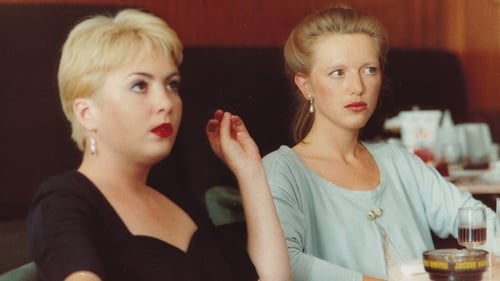
Aunt Mária
The story shows Emma's and Böbe's fight for survival, for keeping their position in society which they achieved with hard work in the previous regime. They don't want to lose their place and become village girls again.

Olga
In a small port town at the end of the 19th century children are disappearing. A mysterious man in black who stalks the town may be Death itself. And nine-year-old Laurin is suffering terrifying dreams and hallucinations of a man carrying a sack and frightened children calling for help from behind closed windows.

Vendel Imre is a driver, his wife is expecting a baby, they have two sons. Before 1945 Vendel was a military officer. In 1951 they receive a letter from the Ministry of Interior: they will be transported to a forced domicile, allowed to take 50 kg personal belongings per person with them.
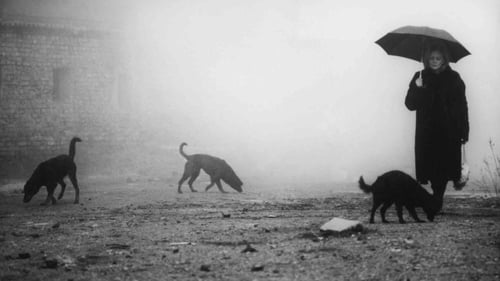
Cloakroom Attendant
Karrer plods his way through life in quiet desperation. His environment is drab and rainy and muddy. Eaten up with solitude, his hopelessness would be incurable but for the existence of the Titanik Bar and its beautiful, haunting singer. But the lady is married and Karrer is determined to keep her husband away...

Makrainé Witman Emese (voice)

Laura is personnel manager in a hospital. Her father-in-law was a high ranking cadre, her mother-in-law is an influential functionary, it is only her husband - director of an archives - who is unfit for everything. Laura does not like to be home. During one of her rovings she meets her former classmate, who wants to break into the world of pop music with a new band.

Szilvássyné
The hero of the story that takes place at the beginning of the nineteenth century and recalls real historical personages is Akli Miklós, the court jester of Emperor Ferenc.

Pisti's mother
Blind luck ties the fate of two people together.

Magdalena
Hungary's submission for the Academy Award for Best Foreign Language Film in 1984

Hédi
In this dense setting, the inhabitants of a large, claustrophobic apartment reveal their darkest secrets, fears, obsessions and hostilities.

The plot of the film starts at the beginning of the century, in the heyday of the Andrássy and Károlyi families, during the ever increasing crisis of the Austro-Hungarian Monarchy, and ends with the emigration of the Károlyi couple after the collapse of the 1918-19 revolutions. It tells the story of this historical period (war, revolution, take-over by the proletariat, dictatorship) from the view of an extremely wealthy lady, Andrássy Katinka. The authors tried to evoke the special story during which a strange and unique woman gets thoroughly involved in history through her love and at the same time keeps her own identity and self-governance.

Róza
The story of a childless Jewish couple in WWII-era Hungary who adopt a Hungarian boy and raise him with their values and traditions.

Győző is a 38-year-old insurance agent. At a playground, he gets acquainted with the 40 year old Gábor, left by his wife, and with a career as an opera singer in pieces.

Halmosné
Two old women who happen to be pickpockets stole money from Simon, the taxi driver. The police are unable to find the thieves, so Simon decides to find them himself.

Róza
"Ripacsok" is a great movie with great soundtrack, acting, cinematography, direction, etc. The world of "artists", hamming actors, good clowns and bad clowns... A unique movie in many ways. Pál Sándor is a very good hungarian director, watch his movies (especially the slightly better "Régi idõk focija") if you have the chance.
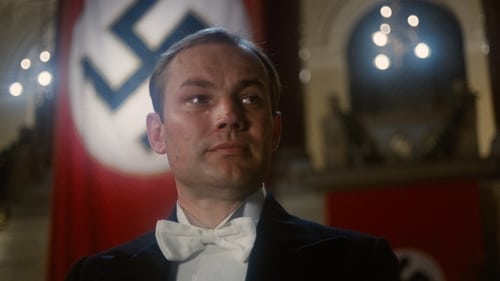
Egy nagybankos neje
A German stage actor finds unexpected success and mixed blessings in the popularity of his performance in a Faustian play as the Nazis take power in pre-WWII Germany. As his associates and friends flee or are ground under by the Nazi terror, the popularity of his character supercedes his own existence until he finds that his best performance is keeping up appearances for his Nazi patrons.

Márta néni
Film by Judit Elek.
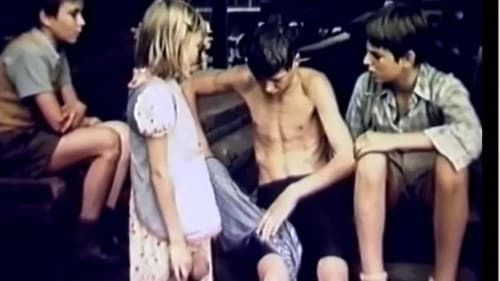
1934, Germany. The ten-year-old Peter lives in a small town with his parents. His father, an underground Communist, is arrested. In the summer vacation the kids from the neighbourhood fight in two teams, which prevail in turns. One team, led by Ewald, imitates the Nazis, while the other, headed by Fritz, follows his Communist father's example.

A mediocre countryside actress is invited to a Budapest casting call. She hopes she might become the new Marilyn Monroe.

Irén and Attila, a not-so-young couple, are in love. All they want is a flat of their own where they could live together. Unfortunately, Hungary in the 70s is no place for dreams.

Rendésznő
This double-threaded story depicts the lives of a sister and a brother in a critical phase of their lives. Virág participates in a tour of the collage choir to Finland. Upon her return home she refuses the assistance offered by Vince, leaves the collage and aborts her child by a young Finn.
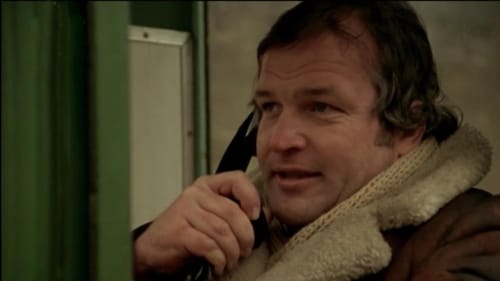
Kati nevelőanyja
Three thirtysomething chemical scientists, Laci, Gyuri and Kati celebrate the success of their development program before New Year's Eve with drinking for several days. But the morning of New Year's Eve does not bring the expected recognition, because the nice, bald, old director is replaced by a young, bald, but disagreeable one. In a sodden atmosphere it becomes clear that everybody has an axe to grind in the informative discussions.

One day Novák Erzsébet kindergarten-teacher destroys her papers, cuts her hair and closes her mouth forever. She prepares for suicide namelessly, then somewhere around Normafa she accepts being taken into an asylum.

Énekesnõ
While awaiting his release from the Soviet detention camp he is being held in, a half-starved refugee (Andras Ambrus) finds that an error has been made and his name is not on the to-be-released list. It is then that he is forced to assume the identity of a dead man whose name is on the list. Ambrus at first refuses, but because he was an orphan and cannot produce evidence of his true identity, he has no other choice. However, when he returns to the outer world and the community he was raised in, he is greeted with suspicion. When he tries to claim his part-ownership of a farm from his adopted uncle, he is refused and beaten by farmhands the uncle sets on him.

This sour satire records how narrow-minded, perishable and prejudiced human relations are. Lili, an open, good-hearted, but clumsy girl gets a rusty Renault Gordini from her uncle living in France. She wants to learn driving, but makes horrible and perilous mistakes behind the wheel.

Cserépkalapos nõ
The film is set in Budapest, 1924. Laundryman Ede Minarik's only passion is football. His dream is to see his team, Csabagyöngye, qualify for the first division. For this goal he would be willing to sacrifice everything he has. But he has nothing, even footballers just barely. The team is just like the times. But still, "we need a team!"

Theda Bara

Three people skilfully kidnap the company director, who never takes the responsibility, takes sleeping pills and spends his time feeding ornamental fish. The kidnappers turn out to be no other than the Engineer, the Technician and the Worker, who only wanted to avoid bankruptcy this way.

Evelina
The head of the nunnery is dying, and the members are divided in two groups as the election of the new head approaches. Led by Virginia, the younger nuns stand up for changing the strict religious dogmas and would like a modern school with genuine science, a bathroom to be built, and a freer spirit. Their candidate is sister Magdolna, who went to secular universities, too. The seminarists, led by Király Erzsi, also rebel against the older nuns' strict discipline and the depressed atmosphere of the institution. However, Magdolna does not want to stay involved in the fight because she is deterred by Virginia's sinful attraction towards her and the tools Virginia is using to gain victory at any price.

Mrs. Marshall

Lisszauerné
The "sleepless years" in this propaganda piece by director Felix Marlassy occur on Csepel Island, an island south of Budapest that is home to an armaments factory. The factory workers are shown being exploited by imperialists, capitalists gone berserk, and fascists, more or less in that exact chronological sequence. The heavy-handed approach does much to undercut the belief that when socialism finally takes over, the lives of the workers are brought up to a human level. In this instance, audiences might prefer a more nuanced and subtle statement, no matter what the message.

Dani, the few-month-old little boy born outside marriage is left by Eszter in the lap of her companion on the train. The widowed Aranka takes him willingly to her. The child is already ten years old and has a good life with Aranka. Then Géza enters their life and he does not welcome the child of someone else.

Marci is drafted from a typical block building in the 6th district in Pest. He says good-bye to Juli living in the same house, with whom they are both very much fond of each other, but neither of them makes a confession. Juli works in a factory, and with her friend Gizus she goes out in the evening for dancing and drinking. After a year, Marci comes back for holiday, he is full of love.

At Christmas Eve in 1944 the runaway Pintér and Gozsó get through the Soviet blockade around Budapest. Pintér intends to hide in a flat abandoned by his own relatives, but he finds his relatives called the Turnovszkys, who are hiding the Jewish Jutka as well. Love unfolds between Zoltán and Jutka.

Mary, daughter of Dõry
Különös házasság is a 1951 Hungarian drama film directed by Márton Keleti. It was entered into the 1951 Cannes Film Festival.






























